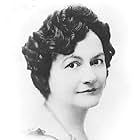This film is barely mentioned by film historians when discussing the work of D.W. Griffith. And yet it is a splendid work, full of memorable performances, and features breathtaking camerawork from the great Billy Bitzer. I guess it is a typical melodrama of the period, perhaps even a little old-fashioned in 1923, but the story is so well told that it becomes utterly enthralling and ultimately very moving. Ivor Novello, soon to shine as Hitchcock's "The Lodger", is excellent as the clergyman torn between the spirit and the flesh. He is an actor able to physicalize inner torment with utter conviction. Carol Dempster is radiantly beautiful as the innocent rich girl and it is fascinating to see a fabulously handsome Neil Hamilton as the "white trash" boy who loves her. He would grow up to become Commissioner Gordon in the Batman TV series of the Sixties.
And then there is Lucille La Verne as Auntie Easter, Dempster's "mammy". It is hard to tolerate Griffith's insistence of putting white actors in black face for African American roles - and his using these roles for low comic relief. Claims by some, including Lillian Gish, that Griffith was not racist are made a nonsense by this. Having said that it is impossible to deny that La Verne is excellent in the role, and that she shows more compassion to her fellow humans than the white characters do.
The performance of the film though is that of Mae Marsh. In the type of role normally played by Lillian Gish in Griffith films, Marsh proves herself to be the equal of Gish. She suffers with great beauty and emotional integrity - and she convincingly takes her character from innocent orphan girl, to town floozie (she is nick-named "Teazie"), to suffering single mother. It is one of the best silent era performances. How sad to note that in later years she was offered little more than extra work in movies.
And the film is so beautiful too - the rose symbol is used to great effect, and Bitzer's use of light and shadow is truly magical. This is a Griffith film that deserves serious reconsideration.
































